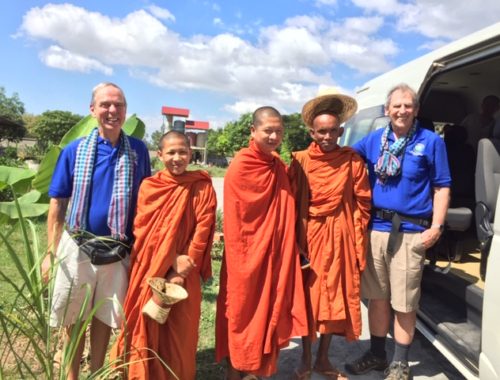International Day of Older Persons
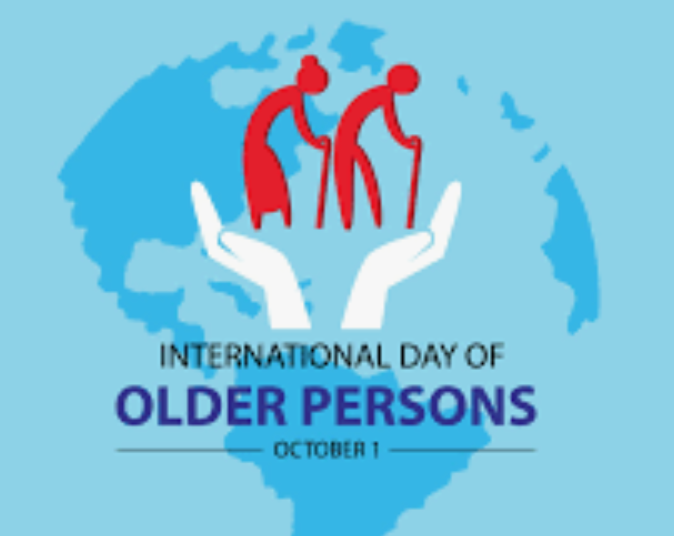
There is More Good News in the World Than Bad
October 1st is the International Day of Older Persons. I do not know what age you have to be, to be considered an older person. Many people say age is just a number. The Zoomers say you just need to be 50.
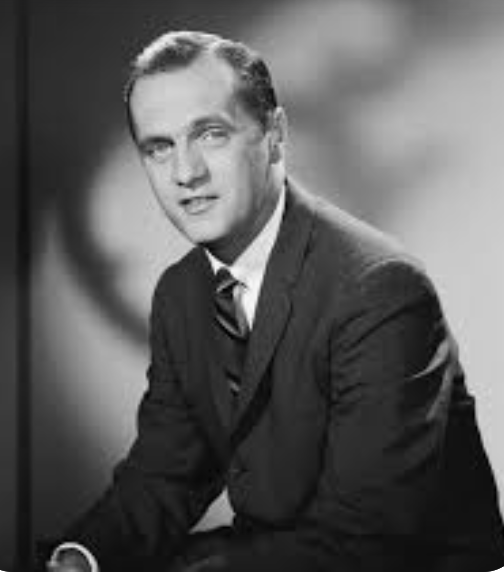
Another group, those born between 1928 and 1946 are sometimes labeled the “Silent Generation” and certainly qualify to be called the older generation. Those alive represent 1% of the world’s population. Humanitarian Stephen Lewis, now almost 86, is one of those persons.
Persons born at this time have witnessed and created a lot of change and done many things younger people do not understand and find strange. Most of them, at least in North America, believe they have been very, very lucky, made a contribution and have lived a good life.
Age expectancy at birth in 1928 was just 61. It is now 80 for men and 84 for women. If one is 80 now, life expectancy is 88 and 91 respectively. Medical technology and changed behaviour brought about by increased knowledge has made this happen. The world’s population has grown from 2 billion in 1928 to over 8 billion now.
Those born in 1928 witnessed the Great Depression and, others WW2 and its aftermath of regeneration, growth and development. Many came to North America to establish a new life and put the horrors of war behind them and after had a very good life.
Life in their growing up years the 40s, 50s and 60s, among other things, included food ration books, milk delivered by horse and cart, discipline was enforced by teachers and parents. Sunday was a church day. Childhood was spent with no TV and limited radio. As a result, many had little understanding of the rest of the world.
Newspapers were dominant, though news was often several days late. Because there was no TV they played outside and were responsible for their own entertainment. There were few organized athletic teams unless you and your friends organized them.
You walked to school, often on your own, from as early as age 5. Telephones were shared one per house and sometimes you had a party line. Many people only had outside toilets. There were no personal computers and the internet had not been created.
Parents were free from the confines of the Depression, though it left many lessons including saving and hard work. Many got very rich and others became better protected by expanding social programmes. The years after WW2 were times of plenty, including jobs, but one lived with the fear of the Cold War. Religion lost much of its’ importance but many became volunteers and givers to society. Human and women’s rights made big advances.
New stabilizing institutions such as the U.N. were created, there was the Vietnam War and the drug scenes of the 60s. There was the AIDS pandemic and later COVID. In spite of what appears in the media, there are now fewer wars, less extreme poverty, and less violence. Technology has put people in space and allows us to do more things. We have changed our behaviour and this has contributed to a changed climate. This is something we are trying to correct.Older people are traveling more and staying physically active. One man I knew skied in a downhill ski race at age 100. Did you hear about the 104-year-old woman who just went skydiving?
This comparatively simple but changing world, for most made for good times and A GOOD LIFE.
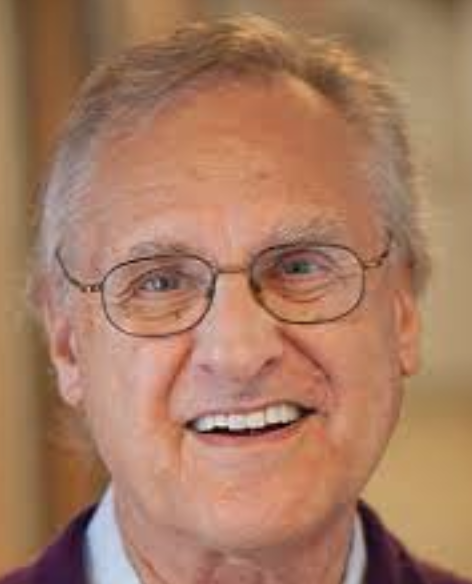
Stephen Lewis was a child of these times and beneficiary of his family upbringing. His father was an activist, Rhodes Scholar, outstanding speaker, socialist and politician who emigrated from what is now a part of Russia.
Stephen had a very distinguished career pursuing social justice for others in politics, as Deputy Head of UNICEF and Canadian Ambassador to the U.N. He never finished university but received 42 honorary doctorates. https://stephenlewisfoundation.org/about-the-co-founders/
In his late 60s and early 70s he became the U.N. Special Envoy for AIDS for five years. In a previous era he would have been retired or dead.
This put him on a plane commuting to Africa and many parts of the world, where he advocated for and supported Africans and their battle with AIDS. His passion and oratorical skills inspired, informed and mobilized everyone who heard him.
While in Africa he saw thousands of older women… grannies (older persons in their society) raising their grandchildren because their own children were either too sick to do so, or had died from AIDS.
One of the offshoots of this work was the creation of, “The Stephen Lewis Foundation,” a foundation which focused on combating HIV/AIDS. Among other things, it connected Canadian grannies with African grannies, raising over $90 million for the cause.
Now some years later, AIDs is still a major issue but is under control thanks in large part to Stephen Lewis.
The Stephen Lewis Foundation now focuses on HIV/AIDS, Health and Human Rights.
Stephen is now in poor health, but still makes a huge contribution through the stories he tells and the people he has helped. While Stephens contribution is in a class by itself, his journey says much about the people of this era continuing to do GOOD THINGS for society.
Not too many years ago, if you were 65 you would be forced to retire at 65 and be “put out to pasture,” so to speak, often putting in time before they died.
For some this meant playing golf or bridge or looking after their family or working on their hobbies.
Most people today at 65 and older want to continue being useful and do meaningful things. Not only do they have the experience, but they have acquired wisdom along the way. Why let this go unused when they can still benefit others?
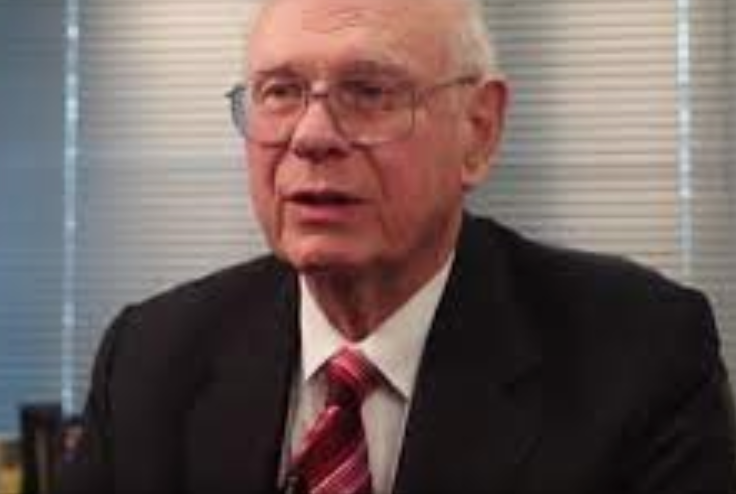
Other prominent older people include: Paul Hellyer, a controversial politician who was giving speeches and writing books until the age of 98. He also developed an interest in UFOs. His theories about people from other worlds is now slowly becoming accepted. The U.S. has just appointed a UFO Czar.
Former Prime Ministers Jean Chretien, Joe Clark, Paul Martin, Brian Mulroney – all in their 80s – are still very active behind the scenes. Former Mississauga Mayor Hazel McCallion was mayor until she was 92. She was on Boards and active until she died at 101.
In the U.S. Henry Kissinger is still giving his opinions at age 100. Former Secretary of State George Shultz wrote a book at age 99 called, “Thinking about The Future.”
Jimmy and Roslyn Carter, age 99 and 96 respectively, while now not active ,made major contributions to the world well into their 90s. He is called the U.S.A.’s best ever former President.
Nelson Mandela, at age 89, along with Graca Machel and Desmond TuTu created the Elders, an organization made up of elderly former world leaders, to add their wisdom and ideas to some of the world current issues.
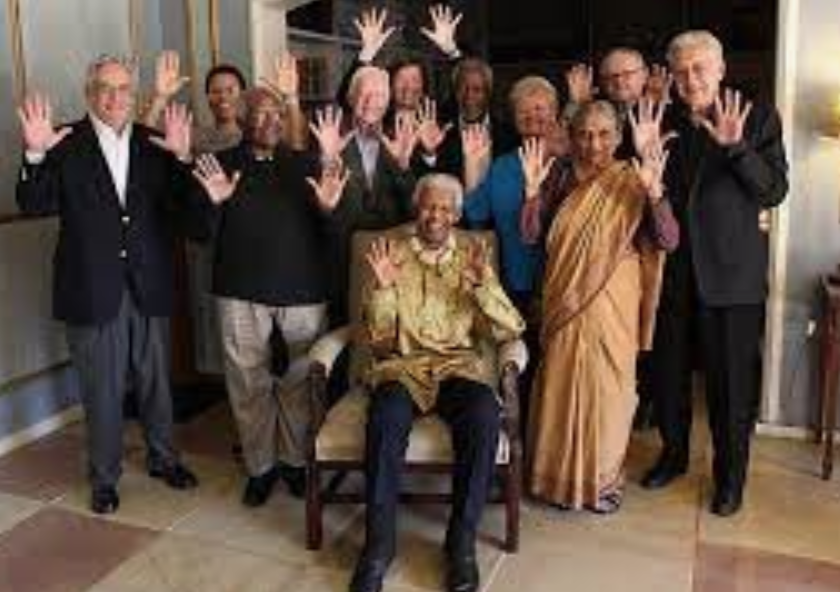
Outside of politics, John Williams in his 90s, is still writing musical scores.
You do not have to be a public figure to stay active and make a huge contribution. Some people have a second career, others consult.
Some people volunteer: There are hundreds of ways to contribute physically i.e. Habitat for Humanity. Others pass on their wisdom when needed through boards, committees, raising money, helping in hospitals, reading and singing to people with dementia.
It is well-known volunteering and doing meaningful things can prolong your life. Giving money to a cause is sometimes the best way to help.
Others help friends going through medical challenges or help raise their grandchildren by being role models or providing guidance, wisdom, values and hands-on support to their families. You may know the saying, “Once a parent always a parent.”
Just being a friend and doing little things for others can bring light and meaning to an otherwise dull day.
Sadly getting old is often accompanied by failing health. I will end with a story of a friend of mine… a retired doctor who had had a stroke and is now living in a retirement home. All of his life he did little things in addition to using his medical expertise to improve the day for others.
One day I was visiting him in his retirement home. As we walked down the hall for lunch he stopped suddenly and went back to his room to retrieve his newspaper. He put the paper in his walker, and we continued on to the dining room.
At the table beside us was a man eating by himself. He was actually falling asleep. My friend got up and took the paper over to him. The man quickly sat up. A big smile took over his face and he thanked my friend profusely for the paper.
Back in his seat my friend turned to me and said, “He likes to read the comics.” This small gesture showed me my friend has not changed. In spite of his health, giving a small lift to the people around him shows he has not been put out to pasture. Nor have the millions of older people who are still active doing meaningful things, traveling and being active. They still make a significant contribution. What you see and experience is their legacy.
On the whole, I believe a better world for our children and grandchildren.
Merci, gracias, taishi, nila, miigwich, danke, shukria, thank you.
Till next time,
Chris Snyder
Climate Optimist - Part 2
You May Also Like
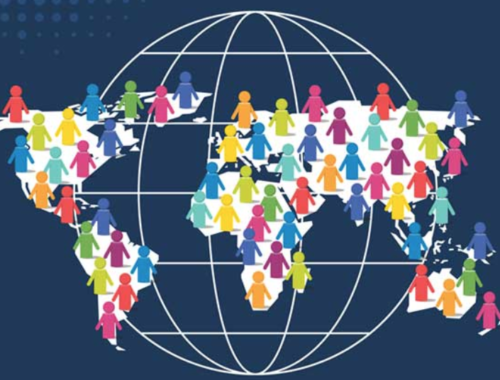
Getting Along and the Golden Rule
July 31, 2022
Saying Positive and Supportive Things to Others
August 13, 2023